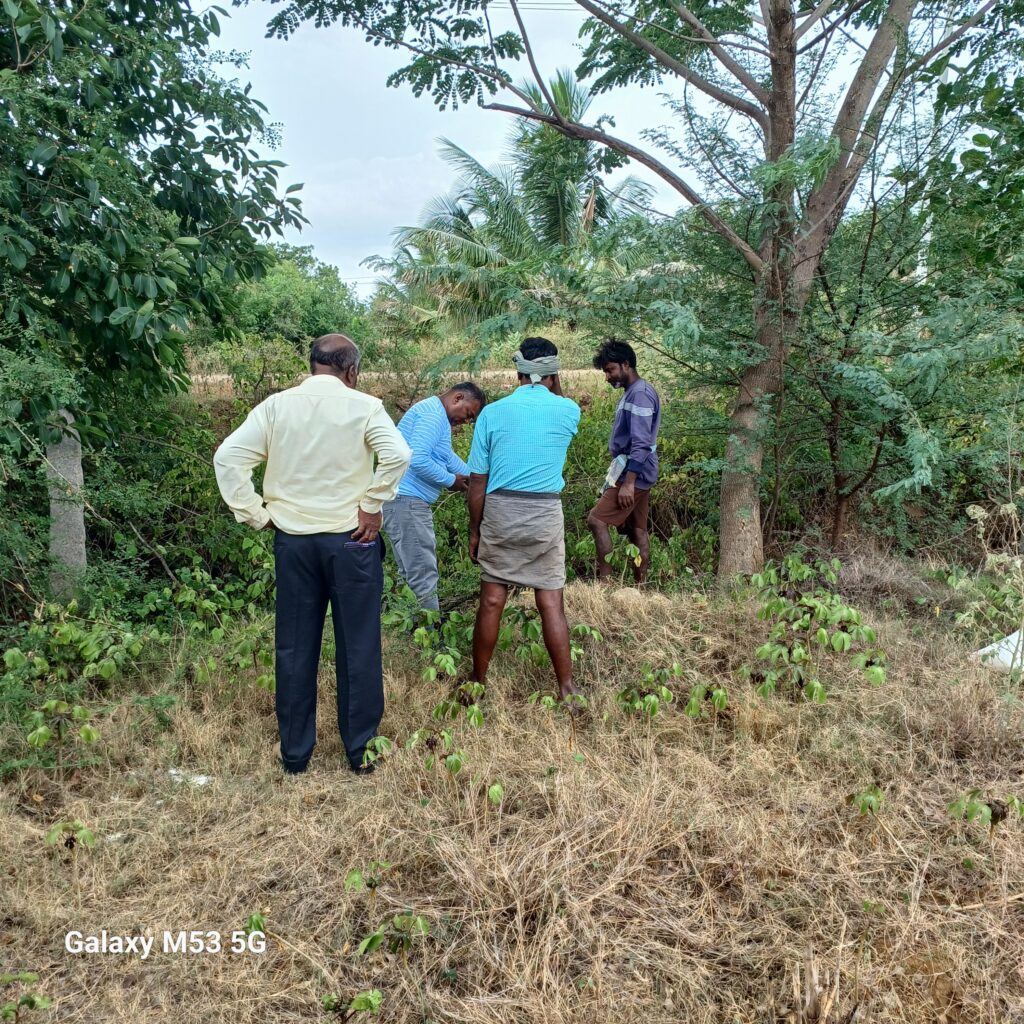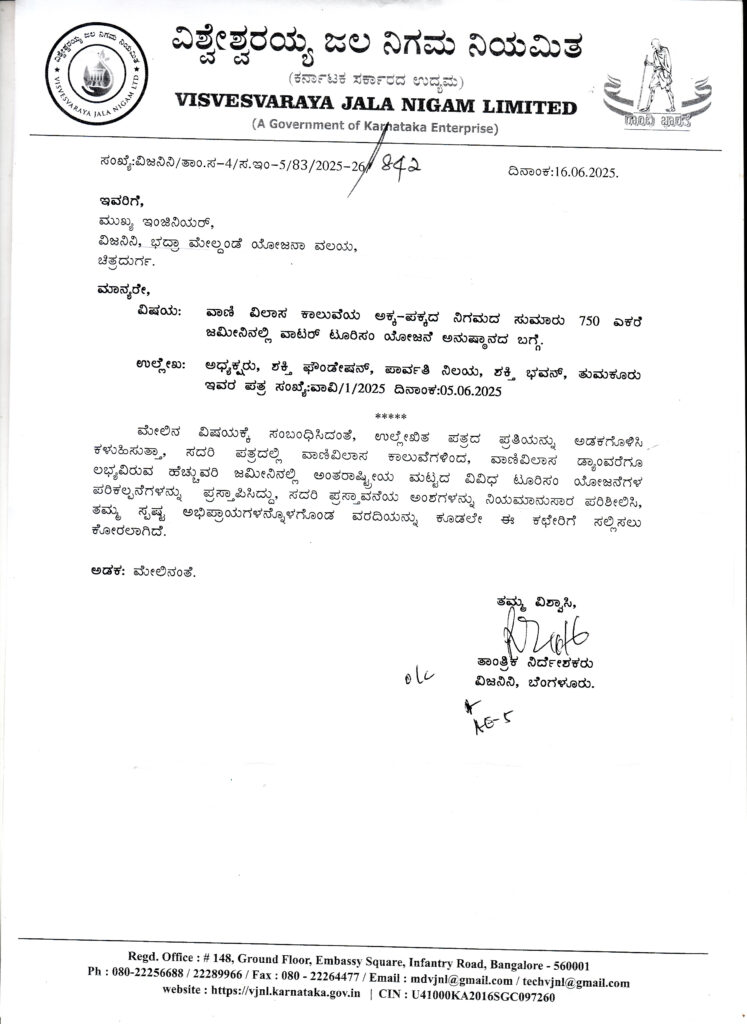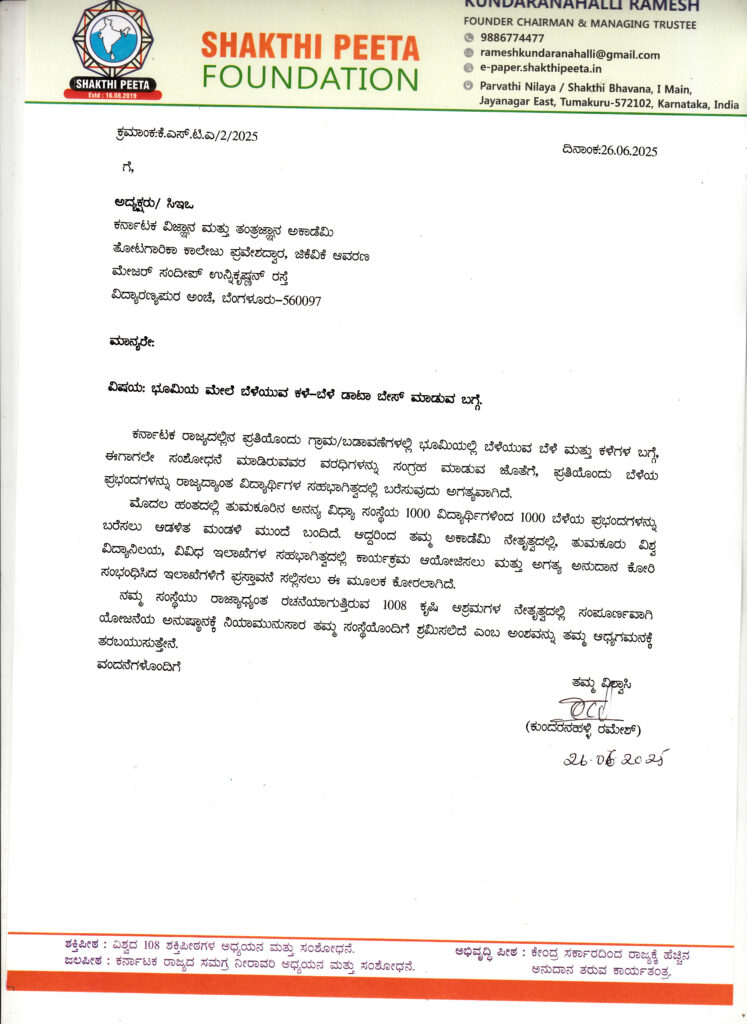TUMAKURU:SHAKTHIPEETA FOUNDATION
ರಾಜ್ಯದ ಒಂದೊಂದು ಹನಿ ನೀರಿನ ಪಕ್ಕಾ ಲೆಕ್ಕಾ ಹಾಗೂ ನದಿ ನೀರಿನಲ್ಲಿ ಸಾಮಾಜಿಕ ನ್ಯಾಯ ಒದಗಿಸಬೇಕಾದರೆ, ಎಲ್ಲದಕ್ಕೂ ಒಂದೇ ಉತ್ತರ ರಾಜ್ಯದಲ್ಲಿ ಸ್ಟೇಟ್ ವಾಟರ್ ಇನ್ಫರ್ಮೆಷನ್ ಸಿಸ್ಟಂ ಮತ್ತು ವಾಟರ್ ಮ್ಯೂಸಿಯಂ ಸ್ಥಾಪಿಸುವುದು. ನ್ಯಾಷನಲ್ ಹೈಡ್ರೋ ಪ್ರಾಜೆಕ್ಟ್ ಅಡಿಯಲ್ಲಿ ಈಗಾಗಲೇ ಅನುದಾನವೂ ಮಂಜೂರಾಗಿದೆ.
ಡಾಟಾ ದೊಡ್ಡಣ್ಣನಾಗಿ ಅಂಕಿ ಅಂಶಗಳ ಇಲಾಖೆ ಮಹತ್ತರ ಪಾತ್ರ ವಹಿಸಬೇಕಾಗಿದೆ. ಕರ್ನಾಟಕ ಮೌಲ್ಯಮಾಪನ ಪ್ರಾಧಿಕಾರ ಪ್ರತಿ ವರ್ಷ ಮೌಲ್ಯ ಮಾಪನ ಮಾಡುವುದು ಅಷ್ಟೆ ಪ್ರಮುಖವಾಗಿದೆ.
ಒಬ್ಬರಿಗೊಬ್ಬರೂ ಅವರ ಮೇಲೆ ಇವರು, ಇವರ ಮೇಲೆ ಅವರು ತೋರಿಸುವುದು ಬಿಡಬೇಕು. ಸಚಿವ ಸಂಪುಟದಲ್ಲಿ ಪಕ್ಕಾ ನಿರ್ಣಯ ಮಾಡಬೇಕು.
1.EXECUTIVE SUMMARY
We are well aware that our water resources are very precious. These resources are increasingly under pressure due to factors like population growth, economic development, urbanization and climate change etc. Effective and efficient management of these resources backed up by informed decision making through seamless availability of historical and real time data both at the state and national level is, thus, of critical importance. Due to multiplicity of data producing agencies collecting their domain specific data-the same is often fragmented, incomplete, dispersed and heterogeneous making it difficult for policy makers to process it into useful information to support decision making. To overcome these challenges, NWIC had been set up by the Government of India in 2018 to act as central repository of data on water resources and allied themes. Though, NWIC is maintaining nationwide digital water database and associated spatial data for the country and disseminates it through a digital platform (India-WRIS), there is state specific micro level & demand side data which can be better collected and maintained by the states themselves. This has led to the concept of establishment of State Water Informatics Centres (SWIC) at state/UT level. The major role expected to be performed by SWIC is to collect data from different state departments/agencies, digitization as per standard formats, validation and populating the same in state specific data base. NWIC would be hand holding states in this much needed endeavour by arranging requisite hardware and software, preparation of data-base, development of analytical tools, generic products and decision support system for SWIC to operate at nominal budgetary support from states. The entire concept and framework of SWIC has been logically explained briefly in the following paragraphs
2.Need and scope of SWIC
As we know what cannot be measured cannot be managed. Therefore, availability of water resources data is critical for management of water resources of the country. In India, water being a state subject, the data fields required for water resources planning & management at local and micro level are available with respective states. A dedicated body as State Water Informatics Centre (SWIC) is needed as a state data repository entrusted with collecting, collating and updating the data and to act on policy towards uniform data acquisition, standardization, analysis and dissemination. The SWIC will be responsible for collection of water data of the state by setting up regular mechanism for collection of periodic data from different state departments/organizations, primary and secondary data validation, customization of applications developed in NWIC to suit state requirements and developing tools & applications specific to their respective state. The basic objective of establishing SWIC is, thus, to empower states with digital, validated, on-line water resources information system required for better planning and management of water resources at State level and simultaneously to feed the central system for basin and regional level policy planning and taking strategic decisions based on authentic data analytics. In coordination with NWIC, the SWIC shall act as a single point solution for regional and micro level data amalgamation and its dissemination.
3. Benefits expected from SWIC:
The establishment of SWIC will help states in:
● Policy formulation for scientific management of water resources and related aspects of the state
● Strategic Decision making
● Modelling activities and development of analytical tools
● Development of decision support systems and other knowledge products related to water.
● Overall water resources management and planning in the respective states.





